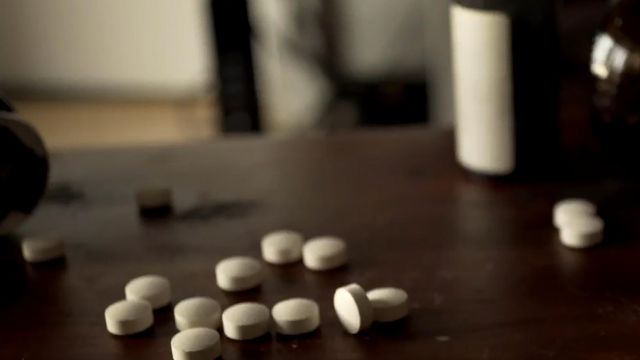Law experts focus on solutions to address mental health and substance abuse needs in the profession
One of the many lasting consequences of the pandemic will be the way it's impacted mental health.
Posted — UpdatedTop law leaders across the Triangle came together Friday at the Welwynn Outpatient Center in Raleigh to focus on how to stop the stigma surrounding mental health.
The center has seen an increase of people needing support during the pandemic. Mostly, people with high profile careers who feel they must mask their struggles and pain.
It’s considered the invisible disease no one is immune to and one that sneaks in over time.
Many people have turned to substance abuse to cope — especially people in high-profile careers.
A Welwynn executive shard his story.
“I was a professional golfer. Then I owned a radio station. And alcohol and drugs took its toll on me. I eventually became homeless,” said Macon Moye, now director of business opportunities at Welwynn.
Ten years later, Moye is a recovering addict who now spends his life helping others heal as a therapist.
“If we can learn how to warn people properly so they would take it seriously. Most of the time when we see people it’s because they are in trouble,” he said.
The pandemic has only heightened mental health and substance abuse needs.
CEO and Founder of Welwynn Lewis Finch sees it first-hand.
“Our census prior to this, the high was around 30. It’s now over 70. We see a very unique niche of folks. Folks that are typically executives, professionals and their families,” said Finch.
He said this group tends to avoid being vocal about their struggles because they believe it it is perceived as a weakness or character flaw.
“They do not want their situation to be known. As a result of that, folks shy away from it. They tend to think that they’ll take care of it on their own and they won’t,” he added.
It shows 36% of those in the legal profession are drinking at problematic levels and 28% struggle with some level of depression.
“Lawyers are considered leaders. This creates tremendous pressure on lawyers to project the image of calm and confidence at all times,” said Judge Lucy Inman, a judge on the North Carolina Court of appeals.
“The problem is lawyers and judges are human beings, and human beings aren’t calm and confident all the time,” she added.
Inman moderated a roundtable with the law school deans of the University of North Carolina at Chapel Hill, North Carolina Central and Campbell universities to open up the dialogue.
It was an event already planned, but the shocking suicide Kryst only made the conversation more urgent.
“We’ve seen role models who have died, and we were shocked that this person who was so successful and so confident will get to a desperate place,” Inman said.
“Self-care is so important. You know it’s really basic nutrition, sleep, exercise, the things that we ignore when we are climbing the ladder,” said Moye, describing how success can bring its own range of hardships for the mind and body.
“I had all those things and they almost killed me. So I think you have to be careful what you ask for and at least have some kind of plan about not just getting it but enjoying it. It’s just a cautionary tale that if you don’t take care of yourself then all of the stuff that you accomplish is for nothing,” he added.
The experts said mental health is not a one-size-fit-all solution. They’re working to create a system that opens more outlets for people to turn to without feeling ashamed.
“Look out for your coworkers. Look out for your classmates. And don’t assume that because someone is highly successful that they don’t need help,” said Inman.
Mental Health Resources:
The NC LAP is a service of the North Carolina State Bar which provides free, confidential assistance to lawyers, judges and law students in addressing substance abuse, mental health issues and other stressors which impair or may impair an attorney’s ability to effectively practice law.
BarCARES is a confidential, short-term intervention program provided cost-free to members of participating judicial district bars, voluntary bar associations and law schools. To speak to someone immediately, call 919.929.1227 or 1.800.640.0735.
Related Topics
• Credits
Copyright 2024 by Capitol Broadcasting Company. All rights reserved. This material may not be published, broadcast, rewritten or redistributed.






